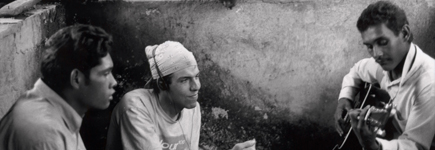This time of year college students around the country are thinking about Spring Break. While some are thinking of parties in warmer climates, hundreds of students at Wheaton College are thinking about the ministry opportunities that await them on their upcoming break. Whereas many college-aged men and women will spend hundreds of dollars to fly here or there for pleasure, Wheaton students will be spending hundreds of dollars to minister to those in need through various programs like the BreakAway. Another program that will draw students is the Honduras Project. Begun in 1979 as a student-run missions project, the project opens students eyes to holistic ministry through the Global Church. In its first year students had focused their attention to the Dominican Republic after the terrible effects of Hurricane David, the strongest hurricane to hit the republic in recorded history. Students responded well to this form of ministry that coupled faith and deeds and allowed students to love their neighbors as themselves. In 1982 similar devastation visited Honduras, where flash floods and mudslides killed eight hundred and displaced tens of thousands. From the organizational efforts of Honduran missionary-kid and Wheaton student, Peter Clark, sixty-nine students joined the National Association of Evangelicals’ World Relief and Comite Evangelico de Desarrollo y Emergencia National (CEDEN) to provide relief.  During this first trip to Honduras in March 1983 students were divided into three groups with some going to Choluteca, Catacamas and Mocoron. The following year Wheaton president J. Richard Chase visited the sites where students had worked and gained an appreciation for this ministry of compassion-in-action. As the project grew efforts were made to be sure that it was a strong program with a good foundation. This required regular evaluation, a faculty advisory committee, and, at times, a slowing of progress to allow for proper communication and completion of prior work. The Honduras Project began to focus upon clean water projects through gravity-fed wells and water distribution systems. A six-person cabinet administers the project, which is self-supporting, and coordinates the fundraising ($60,000 in 2010). The Honduras Project seeks to couple the gospel in action and proclamation.
During this first trip to Honduras in March 1983 students were divided into three groups with some going to Choluteca, Catacamas and Mocoron. The following year Wheaton president J. Richard Chase visited the sites where students had worked and gained an appreciation for this ministry of compassion-in-action. As the project grew efforts were made to be sure that it was a strong program with a good foundation. This required regular evaluation, a faculty advisory committee, and, at times, a slowing of progress to allow for proper communication and completion of prior work. The Honduras Project began to focus upon clean water projects through gravity-fed wells and water distribution systems. A six-person cabinet administers the project, which is self-supporting, and coordinates the fundraising ($60,000 in 2010). The Honduras Project seeks to couple the gospel in action and proclamation.